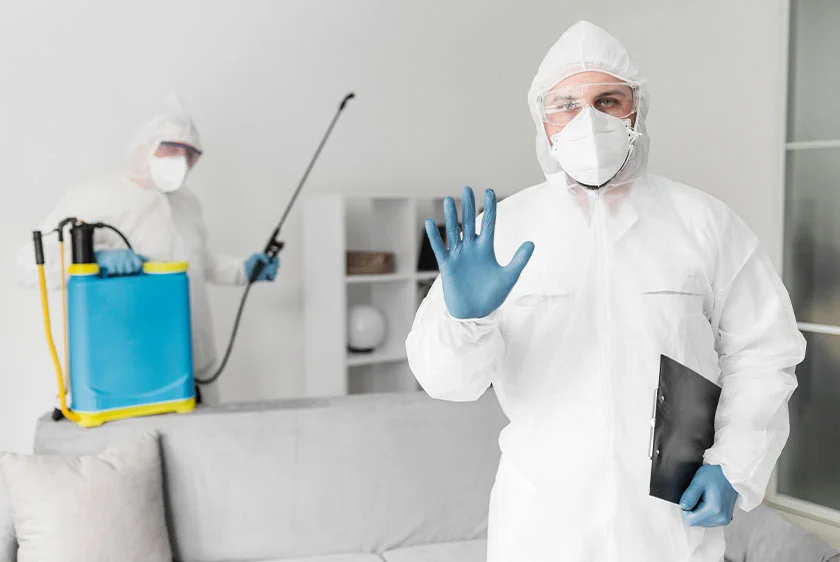Top Tips For Effective Pest Control: A Complete Guide
Welcome to our comprehensive guide on effective pest control strategies. Whether you’re combatting an infestation in your home or maintaining a pest-free environment in commercial spaces, understanding the best approaches to pest management is crucial for success. In this blog post, we’ll explore top tips and techniques that are both effective and environmentally sound.
We will dive into various methods that cater to different types of pests, from insects to rodents, outlining how you can implement these strategies effectively. Our aim is to provide you with knowledge-packed insights so that you can tackle pest issues confidently and efficiently. Let’s get started with our complete guide to effective pest control.
Understanding Pest Behavior
The first step in effective pest control is understanding the behavior of different pests. By knowing what attracts pests into your home or business, you can implement preventative measures effectively. For instance, food crumbs and standing water attract many insects and rodents. Regular cleaning and maintenance can significantly reduce the chance of an infestation. Moreover, understanding the seasonal patterns of pests can help in anticipating and preparing for potential issues before they become severe. Visit Sydney’s Leading Commercial Pest Solutions for more expert advice tailored to your needs.
Additionally, acknowledging where pests are most likely to enter and hide within your premises is essential. Sealing cracks in walls, tightening gaps around windows, and maintaining proper drainage systems can deter pests from entering your property. Knowledge of pest behavior is not only beneficial in preventing infestations but also essential when dealing with an existing problem effectively.

Choosing the Right Pest Control Methods
Selecting the appropriate pest control method is crucial for both efficiency and safety. There are various options available, ranging from chemical treatments to natural remedies. Chemical treatments can be very effective but might pose risks to your health and the environment if not used correctly. On the other hand, natural remedies such as diatomaceous earth or essential oil sprays offer a safer alternative, though their effectiveness may vary depending on the extent of the infestation.
It’s vital to assess the situation carefully and choose a method that suits your specific needs while considering safety for children, pets, and anyone else who shares the space. Consulting with professionals can also help in making an informed decision that aligns with your overall pest management goals.
Regular Monitoring and Maintenance
Continuous monitoring is key in keeping an infestation at bay. Regularly inspecting your property for signs of pests can help you catch new infestations early before they grow out of control. This involves looking for physical signs of pest presence like droppings, damage to structures or plants, and live or dead pests. Setting traps or bait stations around suspected areas helps in monitoring activity and effectiveness of applied methods.
Maintaining your property by clearing out waste, securing food in airtight containers, fixing leaks, and trimming overgrown vegetation also plays a significant role in deterring pests from settling in your environment. These practices should be part of a routine maintenance schedule to ensure that your space remains unattractive to pests.
Incorporating Technology in Pest Control
Advancements in technology have opened new avenues for managing pest activities more efficiently. Ultrasonic devices emit sounds that are unpleasant only to pests, which helps in driving them away without the use of harmful chemicals. In addition, smart traps and cameras can now be used to monitor pest activity electronically providing real-time updates about an infestation’s status.
This technology not only helps in identifying high-activity zones but also assists in evaluating the effectiveness of the ongoing pest control measures without constant physical monitoring. As technology evolves, integrating these innovations into your pest management strategy could significantly enhance efficiency and effectiveness.
Professional Help and Consultation
While DIY methods are handy for minor pest issues, severe infestations often require professional help. Pest control professionals have access to powerful tools and resources that are not available commercially. They are trained in safely handling chemicals and devices essential for eradicating major infestations.
Consulting a professional ensures that your pest problem is assessed accurately and treated effectively with minimal risk to your health and property. Regular inspections by certified experts not only help in dealing with current problems but also prevent future outbreaks by offering tailored advice on long-term prevention strategies.
In conclusion, effective pest control involves a deep understanding of pest behavior coupled with strategic action steps tailored towards specific infestations or preventive measures. By utilizing a combination of knowledge-based tactics,safety-focused solutions,and expert counsel,you can ensure that your environment remains healthy,clean,and free from unwanted guests.
Remember,the goal isn’t just to eliminate current pests but also to create conditions that prevent their return.Ensure regular practice of these principles,and don’t hesitate to seek professional advice when needed to keep your space both safe and pest-free continuously.
